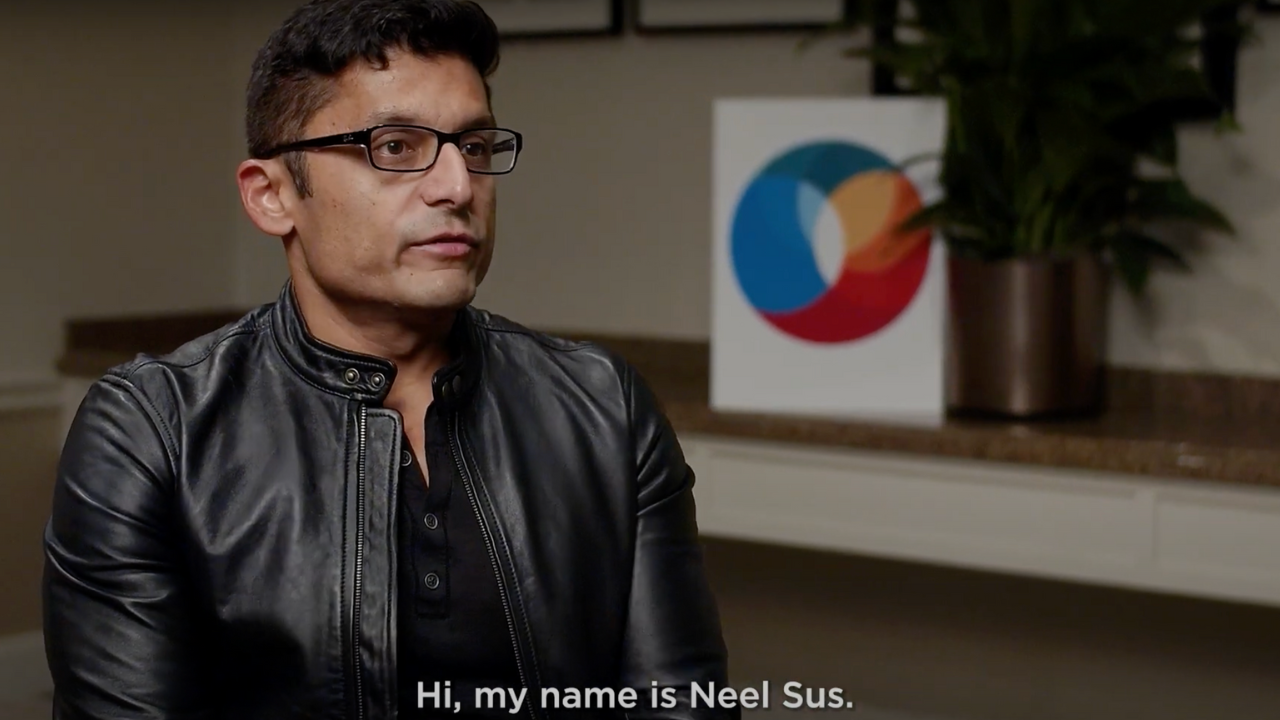Dear Friends,
When my brother Tom and I keynoted the 2012 Conscious Capitalism CEO Summit, I told the room of 200 CEOs that I was going to pick a basket of 12 conscious, purpose-driven businesses’ stocks for 2012. Tom and I co-founded The Motley Fool, which provides financial advice to investors, so that only makes sense, right? But here’s the kicker: instead of being backward-looking, I said let’s watch them going forward from here to see if they outperform their more traditional, bottom-line-driven competitors over time.

That claim has always been a tenet of the Conscious Capitalism movement, but other than a few studies or books, like Firms of Endearment, by Raj Sisodia, David B. Wolfe, and Jag Sheth, it’s been more theoretical than real because of a lack of data. As I sit on the board of Conscious Capitalism today, I have a more heightened passion for supporting this movement than ever before, so I’ll try and bring all that theory down to this pragmatic conversation. Imagine if baseball didn’t offer any stats. As a fan, you wouldn’t know the team’s averages or whether a player was any good. You’d have to judge the team and the players based on how players look when they throw and hit. That wouldn’t work very well for baseball, and it doesn’t work very well in finance, either, where I find few prognosticators are willing to hold themselves accountable with metrics. By contrast, when I pick stocks, I’m all about keeping score, as it’s the best way to learn.
From that stage in 2012, I said, “Let’s watch these 12 stocks over the course of the next five to 10 years, and see if these companies do a good job—not just of living up to what we expect from Conscious Companies, but of how they score for shareholders.”
Before I share the list, I want to acknowledge that there is no gold standard for measuring the so-called consciousness of companies. The list that I presented six years ago was a list of companies where each had its own reason to be included. At the time, there wasn’t any blowback or questioning, but at least for one of these I want to put in a special note. After the election in 2016, Facebook, a high performer on the list, did get busted, and the leadership scrambled to acknowledge and repair its mistakes. At the same time, data sharing is an ongoing question that doesn’t just apply to Facebook. No company is perfect, and bigger companies face more scrutiny. I don’t want to be too harsh or too lenient of a judge about Conscious Companies. If you’d like to challenge the consciousness of any of my choices, I think that would be a valuable debate.
So let’s take a look. Nearly six years after that keynote, how are my picks doing?
Stock Buy Price on Oct 9, 2012 Price on August 3, 2018 Percent Increase
NFLX $9.40 $343.09 3,548%
FB $19.93 $177.78 792%
AMZN $252 $1,823.29 624%
GOOG $370.93 $1,238 234%
ULTI $98.94 $282.37 185%
SBUX $21.84 $52.23 139%
SAM $106.43 $275.60 159%
DIS $47.43 $114.09 143%
GHDX $34.16 $54.28 59%
CMG $288.43 $463.27 60%
WFM[1] $45.07 $41.99 -6.83%
RAX[2] $67.46 $31.99 -52.58%
Here are all 12 stocks, along with the minus returns for WFM and RAX. Note that Amazon (which has subsequently bought Whole Foods) has increased seven times in value, Facebook has increased eight times in value, and Netflix has increased 36 times in value. If you take the stocks I picked and average them, the average stock is up 400 percent. The S&P 500, by direct comparison over the same period, is up 97 percent. The S&P 500 had a good six years, but nothing compared to our Conscious Capitalism 2012 picks!
That evening in 2012, Tom and I killed it with the companies we picked; we are accepting free drinks at the upcoming CEO Summit! But the results of this experiment exceed bragging rights for me. I’m committing to a more serious talk—hey, even uncomfortable conversations— with my colleagues in the Conscious Capitalism movement. Many in the movement have a conflicted relationship with, and view of, capital markets, and I want to change that view.
I understand that we’ve all heard the horror stories about Conscious Capitalists who looked to expand, went public, and soon found their life’s work compromised by shareholder demands and expectations. We don’t have to look any further than the experience of John Mackey and Whole Foods (before the partnership with Amazon) for an example of investors’ short-sighted thinking that often poses as analysis on Wall Street. John frequently (and often bitingly) expressed how investors wanted to fundamentally change his business model to squeeze out higher quarterly profits.
No question, John got a raw deal at times, and his story serves as a fair warning. However, horror stories like these also reinforce the Wall-Street-as-bogeyman stereotype. Investors are capitalists, too, and for all their laudable focus on stakeholder theory, Conscious Capitalists shouldn’t forget that investors are stakeholders with just as much legitimate claim as employees, customers, vendors, and the environment. And that’s a message I am sharing with my movement colleagues on the Conscious Capitalism, Inc. board.
Shareholder value is a wonderful and desirable end. And I think we in the Conscious Capitalism movement shouldn’t lose sight of that fact. It’s important that we value the stakeholder who is providing the capital necessary for growth.
This isn’t a one-way street. I am just as vigilant with encouraging investors to honor the vision of purpose-driven companies. If Costco gives its employees a raise, I don’t want to see an investor’s first response be to complain that Costco stole their money. When investors honor a Conscious Capitalist’s purpose, and Conscious Capitalists treat investors as stakeholders, everyone wins.
Wall Street is taking notice. Black Rock’s Larry Fink and his letter to CEOs rightly got a lot of play, but his call for more consciousness among all public companies came after more and more firms were already discovering the advantages of being purpose-driven brands. In addition to the Conscious Finance firms who are members of this movement, we’re seeing more traditional investment banks open conscious investing opportunities like Global X’s KRMA and Morgan Stanley’s recently launched Institute for Sustainable Investing.
My brother Tom and I founded The Motley Fool 25 years ago. We began as a newsletter for our parents’ friends because they were the only ones who would pay us $48 a year for our stock picks (and because we were writers, both coming out of college as English majors!). Our father taught us about the stock market as we grew up, so you could say our company was created from a balanced place where both humanities and numbers received attention. Our story also reinforces our belief that although the subject matter is arcane to most people, anybody can pick this up and benefit from saving and investing.
Nine or 10 years ago, we invited John Mackey to our headquarters. We’ve had a long-running practice of inviting people to come speak for free at our company. Some great people have taken us up on that offer, and one of them was John. We knew nothing about Conscious Capitalism at the time. He spoke to our employees for a couple of hours and we had lunch with him afterward. He said, “Hey, guys, you should come to this conference I’m behind through Conscious Capitalism called the CEO Summit.” We attended and we loved it. We knew this was a group of people we wanted to hang out with. I’m glad we took John up on the invitation, and I’m also grateful that about five years ago John accepted our invitation to serve on our board.
One of my favorite lines is from Ralph Washington Sockman, who for many years was chief pastor at Christ Church in New York and a featured speaker on an NBC radio program called “National Radio Pulpit.” Sockman said, “The larger the island of knowledge, the longer the shoreline of wonder.” That captures an incredible dynamic that I’m seeing now in Conscious Capitalism. No one is expected to be perfect, but the more any of us do in this space, the more we realize, “Oh, I can do this better with my employees” or “I can try this and see whether my customers feel more valued.” The shoreline of wonder expands with knowledge. That’s why I’m persuaded that the central tenets of Conscious Capitalism are inevitable. Conscious Leaders and CEOs are going to succeed by creating win-win-win solutions for all stakeholders—including shareholders.
[1] Whole Foods Market, or WFM, stopped trading on 8/28/17, and has since been acquired by Amazon.
[2] RAX, or Rackspace Hosting, was taken private on 11/3/16.



